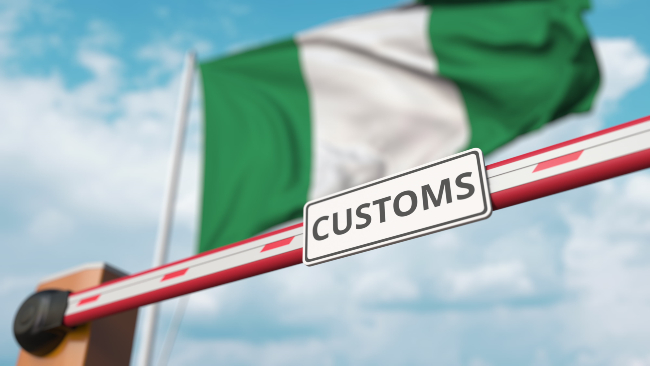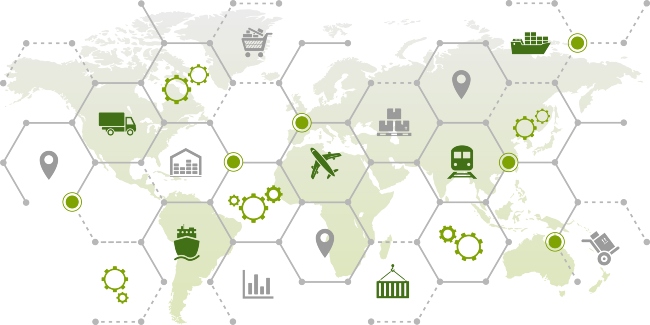In our latest interview with ICC Academy alumni, we spoke to Babatunde Agbeleye, the Relationship Manager for West Africa for Wilben Trade and previously a Trade Finance Specialist for Zenith Bank, where he spent over 15 years.
Babatunde is also a graduate of our Certified Trade Finance Professional (CTFP) programme. We spoke to him about his trade finance career so far and what impact the CTFP has had on his journey.
Read on to find out:
- How Babatunde went from a background in management consulting to processing letters of credit and finally his move into trade sales
- The importance of listening attentively to your clients' needs and being adaptable and dynamic in the solutions you offer
- How the CTFP has opened doors for Babatunde and given him new opportunities that wouldn't have come about otherwise
- Why you should spend time working in the back office, even if you have ambitions to be a front office, client facing practitioner
Thank you for your time Babatunde!
ICC Academy (ICCA): What is your current position and what does that involve on a day-to-day basis?
Babatunde Agebleye (BA): I am the Relationship Manager for West Africa for Wilben Trade, based in Dakar, Senegal. Our head office is in Dubai but we provide trade finance solutions across several regions, with offices in Kenya, Senegal, Turkey, the UK and the UAE.
In terms of what I do day to day, it is a lot!
I start by listening to clients to discover their supply chain challenges. Based on the conversations I have with them, I try to extract their specific needs such as suppliers’ credit, buyers’ credit, any procurement needs etc.
This is an important part of the process and the trick is listening attentively to their challenges and paying real attention to what they are saying. After that we discuss their needs internally and decide on the best solution we can offer them, based on our products.
We then provide the financial aspect of the trade to our clients. For example, it might be we set up an extended import finance facility through our banks across the world through trade instruments such as letter of credit, standby letter of credit, or any other instrument they can offer us.
ICCA: Great. Could you tell us a bit more about your journey to reach this position, including the 15 years you spent at Zenith Bank?
BA: My trade finance career really started in 2004.
However, prior to that I worked in management consulting, specifically working with banks on corporate strategies. I had the opportunity to speak to back office and front office staff about their needs and how to incorporate that into a corporate and competitive strategy.
This is where I really built my interest in trade. It seemed like a dynamic field.
After that I started going for interviews and I got the opportunity at Zenith Bank. I started in the documentary credits and collections department. I was doing the rudimentary and basic tasks in the back office, such as filing, attending to customers, processing letters of credit (LC), processing collections, and bill of exchange acceptance.
I worked in the back office until 2010 although my role did change slightly in that time. I started to engage with the regulatory authorities and specifically the agencies that managed the inspection of goods coming into Nigeria at that time.

My role was to help our customers liaise with these agencies (Cotecna, SGS, and Globalscan Systems) and resolve any trade related issues. This is where my interest changed slightly. I found this aspect of the job even more interesting and decided I wanted a more hands-on role.
I made a request to the head of the department to move to the letter of credit desk in 2010 and that is where I began to process fresh LCs. This new position shaped my move into trade sales where I am today.
From LC processing, I started interacting more with the conglomerates, corporates and high-end customers, discussing their trade needs and facilitating solutions. This gave me the platform to move into what I do now.
ICCA: And what was it about trade finance that appealed to you when you decided to go down this path?
BA: The fact that you can reach out to the world wherever you are and that its success depends on a good understanding of each party’s needs.
This is my passion, listening to clients talk about their needs and being in a position to help them.
ICCA: Do you still get the opportunity to use that passion in your new position?
BA: Yes absolutely.
The difference in my new position is that previously, working for a commercial bank, I felt a little restricted because I was working with only one bank so my focus would be on just our customers.
But today, I don’t focus on one customer from one bank. I can focus on customers across banks in West Africa and speak to as many customers as I need to, to find a solution. This is a joy for me! I don’t see it as boring.
This was one of the things I looked for when I got my job at Wilben, which is a front office, trade sales job.
In this role, there is not one defined solution. Yes, we have basic products, but you have to be dynamic in your deals. You need to look at things globally.

For example, the Islamic Murabaha and trade finance concepts are different, so what works in Nigeria, may not work in Dubai. Just because I am based in West Africa, this is not the only place trade exists! Wilben has given me the opportunity to engage in trade finance across many places.
Trade gives you a global, international view which I love.
ICCA: Moving on the Certified Trade Finance Professional (CTFP) qualification you took with us. What was your motivation for taking this certification?
BA: Prior to 2010, I was working in trade finance and happy, but I didn’t really have a vision or idea of where I wanted to go in trade.
In 2014 I took the CITF and then the CDCS in 2017, both with the London Institute of Banking and Finance. I took these courses to understand more about what I was doing at my desk. Both of them opened my eyes a bit, but I noticed things were still a bit short in my head.
I didn’t have a concept for trade sales. I didn’t have a concept for complex transactions, commodity finance, or trade operations as it is internationally perceived. I didn’t have a concept on so many other areas that would help me get to a full understanding of what I feel trade should look like.
I started looking around for other programmes and came across the ICC Academy and the CTFP. I looked at the list of courses and the curriculum and I knew it was for me immediately.
I told my organisation that if they really wanted to get the best out of me in trade sales, then I need to take this exam. They supported me.
The CTFP has been fantastic for me since I passed in January 2019. Seven months later Wilben came calling so you can say that the CTFP has really opened doors for me!

My current opportunities would not have happened without the understanding I got from taking the CTFP. I would be happy to recommend it to anyone because it is a broad programme.
The other thing I really love about the CTFP is that it is dynamic. It is being improved upon all the time. There is no textbook gathering dust. It is getting refreshed constantly and the revised materials are still made available to you online for your reference for 12 months after your enrolment date.
I like to keep up to date with new ICC courses, and I also took the Incoterms 2020 Certificate last year.
ICCA: You mentioned the broadness of the CTFP. Can you talk a bit more about why that appealed to you?
BA: Yes. As a CDCS holder, I had the option of taking a reduced number of courses, but I told my organisation to register me for everything. I needed to see the full picture!
Each of the nine courses has a good level of detail. The case studies and visual element made it very appealing. I enjoyed reviewing everything. The broadness of the CTFP was the big appeal for me.
ICCA: Coming back to your career. What advice would you give someone starting out in trade finance?
BA: I would advise them to be dynamic. They can’t afford to be narrow minded.
Trade is big and you need to be able to understand lots of different people’s needs. It is different from one country to another. The basic concepts and foundation may be the same, but it evolves so you need to have an open mind.

You also need to be a team player because you won’t know it all. You will always find one person who has a very important detail that matters, that can change things.
You need to have the appetite to explore and see the world as it is. You can just stay at your desk and be good at your job. But you will never be challenged, and you will not move far from where you are.
Be a team player, be flexible, be dynamic and be ready to explore.
ICCA: You worked in the back office before moving to a front office role. Is that a route you would recommend to others?
BA: We are all built differently, but in my opinion, it is a good route to take. In the back office you won’t get to see that much. You will probably just be looking at documents…they are called documentary credits for a reason!
Having said that, you need to start from somewhere and the back end is equally important. That is where the support for the front office comes from.
Once you have spoken to your clients, you need to have discussions in house and call on the support of your back-office colleagues.
If you don’t maintain that relationship with them, you will lose your clients.
If you don’t provide the right documents, you will lose your clients.
So in a front office role you need to have an understanding of what the back office is doing so you can manage your clients properly. If you are in a back office role and you can progress to a front office role then I would recommend this, although not everyone gets this opportunity.
ICCA: Interesting. What’s the favourite part of the job you do now?
BA: There is a lot! One thing I love to do at Wilben is teaming up with my colleagues to come up with solutions for our clients. I also enjoy the initial step of sitting down with clients and listening to them, looking at their supply chain and identifying what their needs are.
Finally, I enjoy the solution aspect. To sit down, conceptualise and come up with the proposal is a beautiful thing. And of course, when the solution is accepted and you have the money on the table, everyone is happy.
ICCA: And what about the most challenging part of the role?
BA: Negotiations!

If you have a solution and then you start discussing pricing with the client and they don’t accept, it can be difficult. It helps that I have a good team with me at Wilben. When I am not having a breakthrough, there is a back-up. Even if I am finding it difficult to close the deal, my managing director can come in and help me resolve it.
Another aspect of negotiations is with the banks or other parties involved in the transaction. You may have agreed a solution and pricing with the clients but the banks you are working with also need to accept your solution. This is another area we must try and iron out.
ICCA: What industry sources do you use to keep up to date?
BA: For this job you need to stay on top of the latest news and trends coming out of your region in particular. I keep track of business reports coming out of Nigeria or South Africa and Africa at large. BusinessDay, IOL AM and Bloomberg helps me with this.
I also attend conferences when and where I can, for example GTR trade conferences/events. We participate actively in GTR events at Wilben to facilitate trade across the regions where we operate.
I am on the WhatsApp group for ICC Nigeria. About 85% of the banks in Nigeria are in that group. So you get to know what is going on in the banks and trade generally.
Finally, I also look to keep up to date with ICC courses like I mentioned. For example, I have just signed up for the Ethical Marketing and Advertising certificate.
Thank you very much for your time Babatunde!

